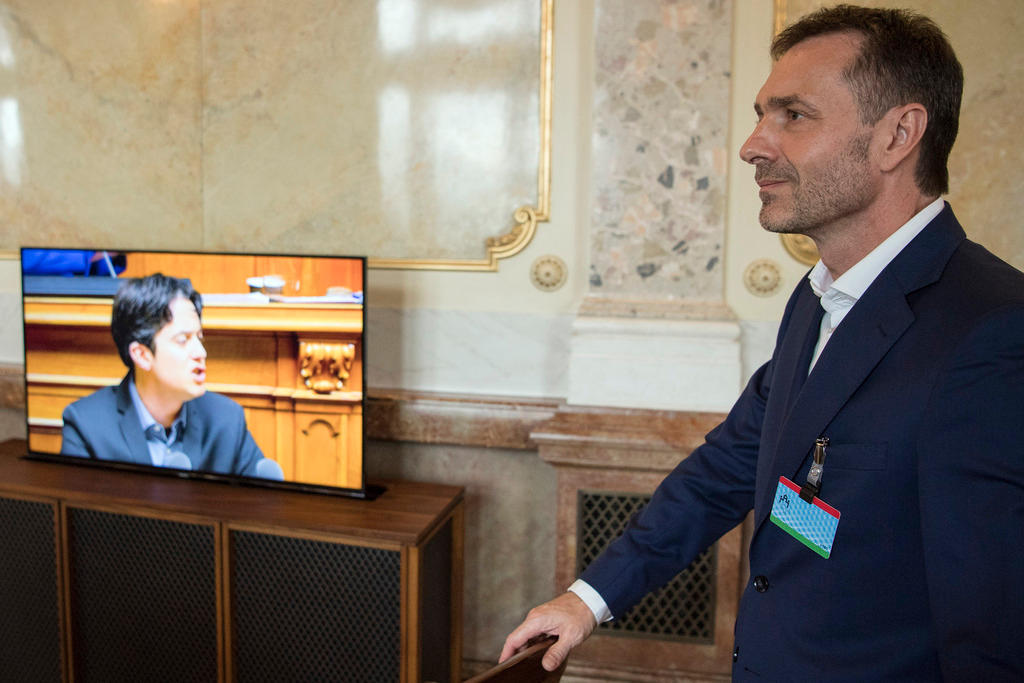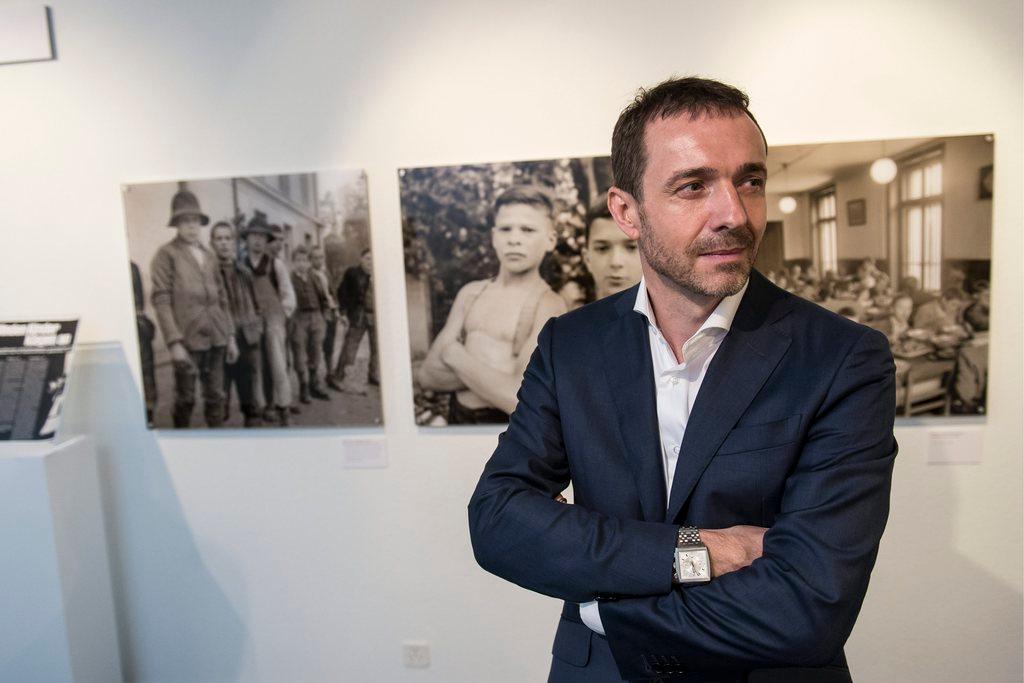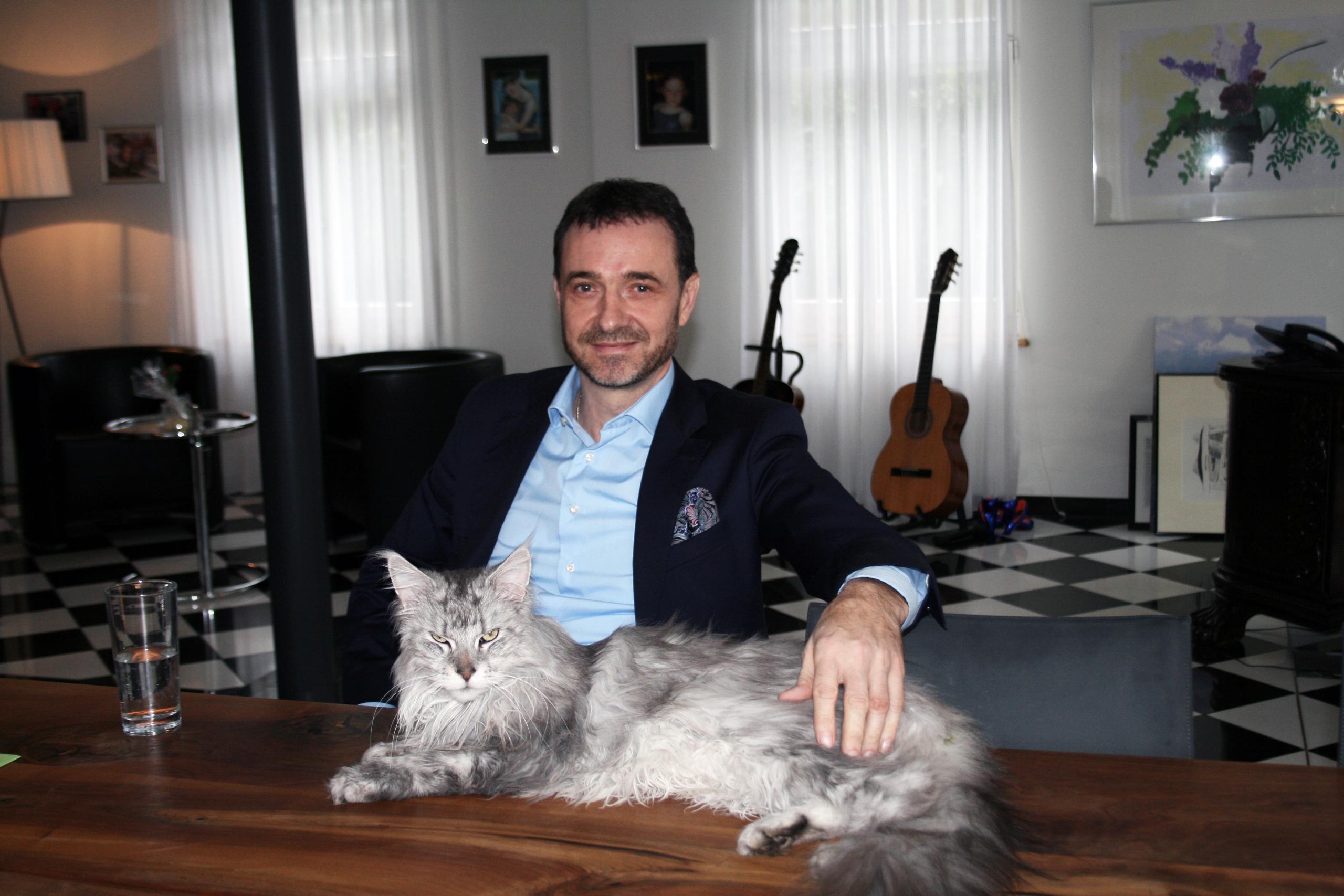Lawmakers approve reparations for child victims

Following an emotional two-day debate, the House of Representatives has approved a government counterproposal to the “Reparation Initiative” – a people’s initiative which would recognise and compensate victims of Swiss foster care and child labour policies up until 1981. The counterproposal now moves on to the Senate.
Whereas the initiative calls for the creation of a CHF500 million ($514 million) reparation fund, the government counterproposal would create a fund of CHF300 million to be distributed to an estimated 12,000 to 15,000 victims, with each person receiving a maximum of CHF25,000.
The counterproposal was seen as the better alternative by a majority of members of the House, with 143 voting in favour and 26 against, with 13 abstentions.
PLACEHOLDER
The initiator of the Reparation Initiative, multimillionaire Guido Fluri, said he was in principle willing to withdraw his initiative, depending on the results of the vote in the House and the Senate. He told swissinfo: “I couldn’t accept it if the [amount of the retribution] was bargained down even further. That wouldn’t be right. But I can support the counterproposal because of the timing. Many of these people are old and fragile. They need this contribution, this recognition and offer of solidarity, now – and not in three or four years.”
One advantage of the counterproposal is that it would involve the passage of a law, and thus could be applied much more quickly than the initial initiative, which would require a change to the constitution and thus a vote by the Swiss people.
In addition, the counterproposal would include official recognition of the suffering of the victims, access for the victims to public files, and creation of a national research programme to investigate the issue.
The initiative calls attention to a dark period in Swiss history, when so-called “discarded children” – victims of forced labour policies or placement in institutions – often suffered from abuse or neglect, and in some cases even underwent forced sterilisation or participation in medical experiments.
Here are some key events of the past 35 years:
1981: Following the 1974 ratification of the European Convention on Human Rights, Switzerland stops all practices that allow for internment (institutional or penal), infringement on the right to procreate (castrations or forced abortions) as well as forced adoption or forced placement with foster families.
1999: Parliament launches a proposal for compensation of victims of forced sterilisation.
2009: Another proposal is launched by parliament for redress for moral wrongs done to minors placed in educational institutions.
2009-2013: The travelling exhibition “Stolen Children” presents 300 eyewitness accounts and photos at locations across Switzerland.
2011: Parliamentary inquiry into the rehabilitation of people placed under administrative custody; another calls for an examination of the historical conscience and the excuses of the authorities.
April 2013: At a public ceremony in Bern, Justice Minister Simonetta Sommaruga apologises to victims on behalf of the Swiss government
March 2014: Parliament introduces a draft law covering the rehabilitation of victims, a research project and guaranteeing victims access to their files.
March 2014: A group of citizens launches an initiative calling for victim compensation and begins gathering signatures.
July 2014: The Round Table, a private group, establishes a fund for immediate aid to victims. 650 requests for assistance are received, 450 of them are examined, and 400 receive funds totalling CHF3 million, or around CHF8,000 per victim.
December 2014: The people’s initiative calling for victim compensation is submitted with 110,000 signatures; it calls for the creation of a CHF500 million compensation fund for victims.
December 2015: The Swiss government acknowledges the results of the consultation process and forwards a counterproposal to the parliament, asking for the creation of a CHF300 million compensation fund instead.
April 27, 2016: The House of Representatives votes in favour of the government counterproposal to the people’s initiative, ruling that victims should get between CHF20,000 and CHF25,000 each as compensation.

In compliance with the JTI standards
More: SWI swissinfo.ch certified by the Journalism Trust Initiative












You can find an overview of ongoing debates with our journalists here . Please join us!
If you want to start a conversation about a topic raised in this article or want to report factual errors, email us at english@swissinfo.ch.